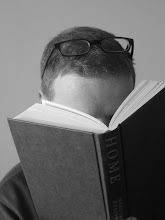
Although at times I’ve been embarrassed to admit it, the truth is I’ve always been a bit of a fan of the literary pilgrimage. One of the first things I did when moving to London years ago was sneak off to Hampstead to see the house Keats had lived in (see pic above). I still remember standing in the garden and getting very excited when I saw the plaque indicating the very spot on which Keats was supposed to have been sitting when he wrote Ode to a Nightingale. At that moment I felt that both the poem and Keats himself had come alive to me in a way they weren’t before. Not in some bogus transcendental manner, but simply in the way that the physical reality of the place gave both ode and man a context and grounding they just hadn’t had for me previously. Keats and the poem no longer lived merely on the page or in my head – they had become flesh.
I felt the same way when I happened to be in Oxford, Mississippi, a few years back and went to see Rowan Oak, William Faulkner’s grand old Southern home. Walking around this place, seeing Faulkner’s Underwood typewriter on which he wrote so many of his books and seeing some of Lafayette County - the real-life counterpart to Faulkner’s fictional Yoknapatawpha County - made Faulkner’s work feel tangible, real and utterly contemporary. I’d always loved Faulkner’s novels and regarded them as awe-inspiring works, but now I also truly understood they were written by a flesh and blood man who sat in this chair, walked on this path, lived in this house. He and his books suddenly moved out of the realm of fantasy and the abstract and became grounded in real life. The hard graft and creative work which went into making these books suddenly became more real.
Of course, plenty of people object to the literary pilgrimage for a variety of reasons, cheesiness chief among them. Some people may prefer to maintain the primacy of their imagination, and feel that seeing where a book was set or where an author lived encroaches upon them in the same way that a film adaptation of a book can sneak into your head and replace your images, characters and scenes with those from the movie.
Fair enough, but I prefer to think of this as less a confrontation where images fight for supremacy and more of a creative conversation, where the pictures that explode and form in your head while you’re reading meet up with the real world and both are enriched by the contrast.
However, sometimes the two seem to perfectly mirror each other in ways that can feel quite eerie. I had one of those experiences last weekend when I went to Gloucestershire for a few days away. It turns out that we were staying not far from Slad, the small village where Laurie Lee grew up and which he immortalised in Cider with Rosie. I’ve always loved Lee’s books, so I knew I had to go and take a look at the house he grew up in.

It wasn’t hard to find, but what struck me was how closely it resembled the house as I’d imagined it when reading Cider with Rosie.
Our house was 17th-century Cotswold, and was handsome as they go. It was built of stone, had hand-carved windows, golden surfaces, moss-flaked tiles, and walls so thick they kept a damp chill inside them whatever the season or weather … Most of the cottages were built of Cotswold stone and were roofed by split-stone tiles. The tiles grew a kind of golden moss which sparkled like crystallised honey...Behind the cottages were long, steep gardens full of cabbages, fruit bushes, roses, rabbit hutches, earth-closets, bicycles and pigeon lofts.
The bicycles, cabbages and pigeon lofts may be long gone, but the ramshackle charm of the building was still very much there. It looked almost exactly like how I imagined it.
As I looked down on it and later, when I walked past the pub and old school which Lee had walked past when leaving the village on his way to London and then Spain, images and scenes from the books came flashing back to me. I determined there and then that I was going to dig out my old copies of his books and re-read them.
After all, that seems to me the goal of any literary pilgrimage – not to merely wind up at a place, but to ensure that the place acts as an inspiring waymarker leading you back to your ultimate destination: the books themselves.




No comments:
Post a Comment